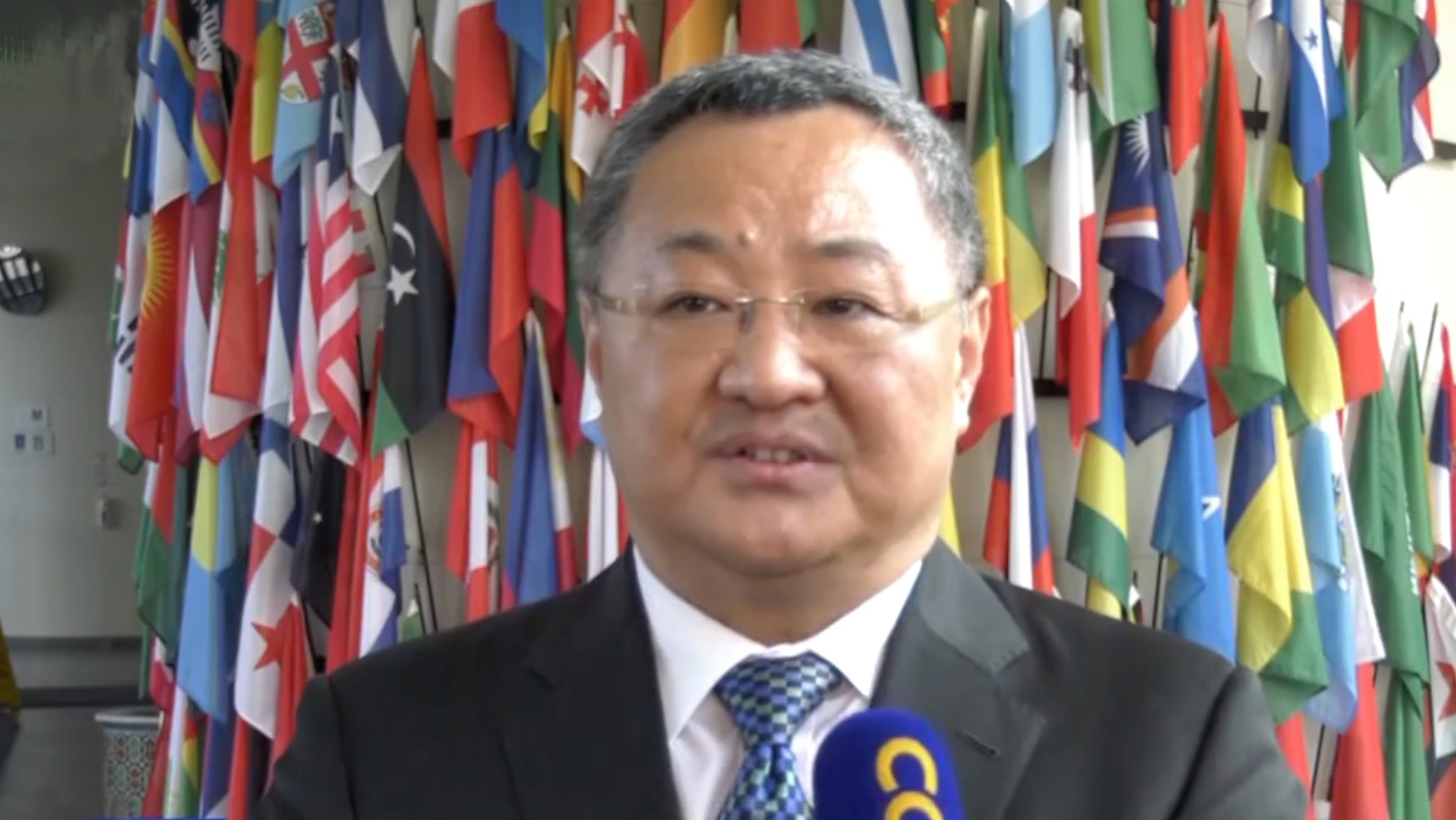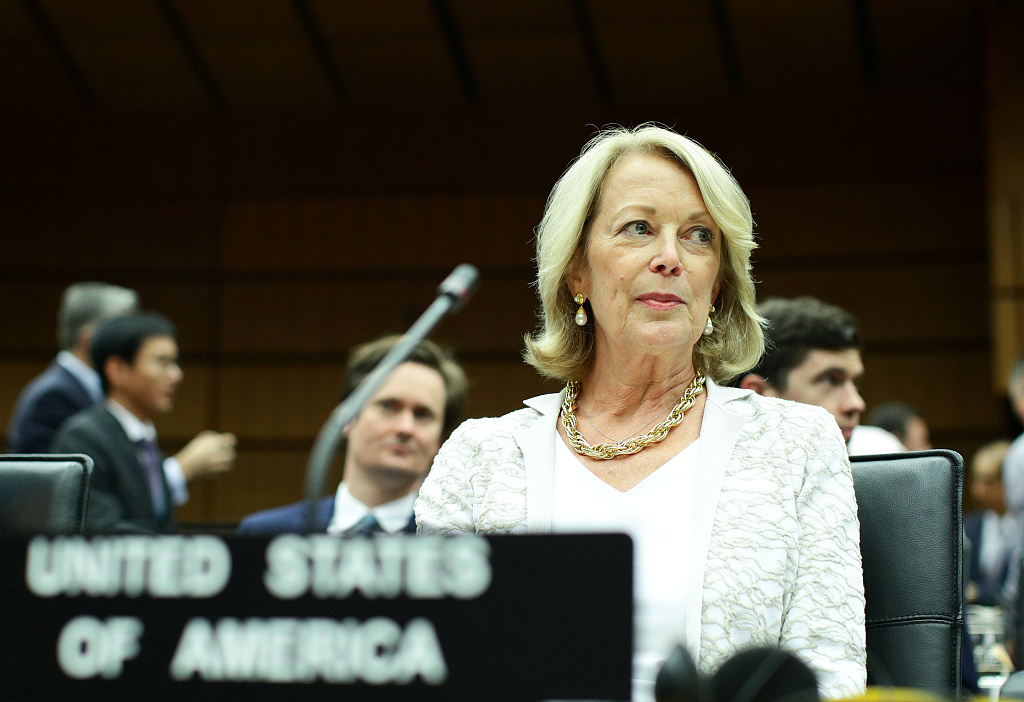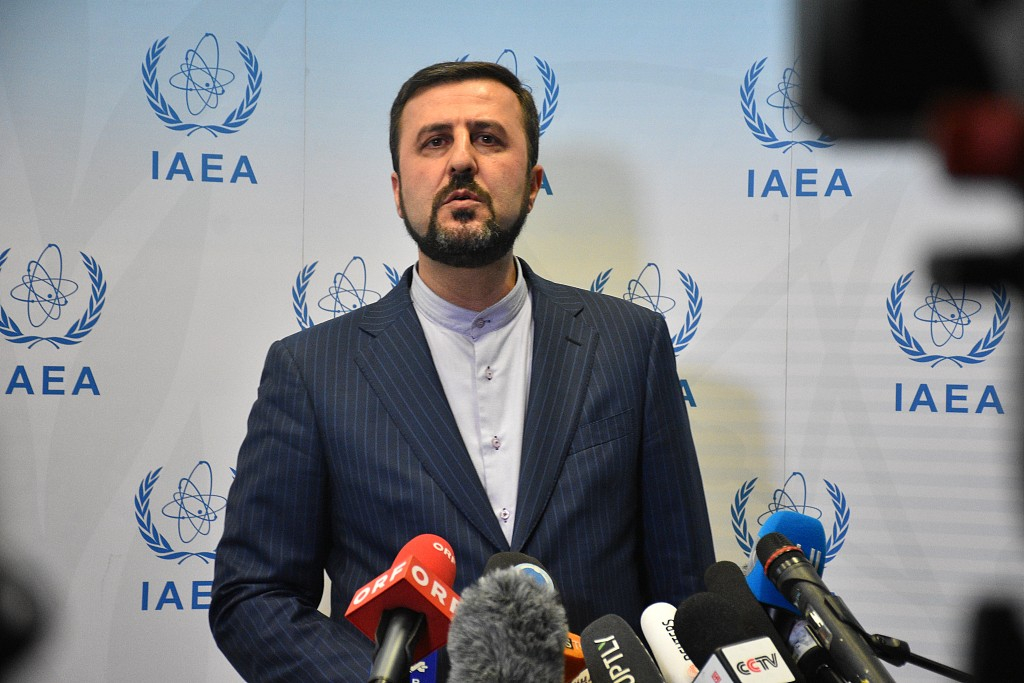

The international community should not overreact to Iran's recent nuclear moves because they do not incur any proliferation risks, said Fu Cong, head of the Chinese delegation at an International Atomic Energy Agency (IAEA) Board of Governors meeting on Wednesday.
"We do not, we should not overreact to the actions taken by Iran, because in our view, these actions do not incur any proliferation risks, and they do not contravene Iran's obligation under the safeguard agreement," said Fu, who is director general of the Department of Arms Control of the Chinese Foreign Ministry.
Fu made the remarks after the 35 members of IAEA board of governors gathered for a closed-door meeting at the IAEA headquarters in Vienna, Austria.
It was confirmed last week that Iran had exceeded the stockpile of enriched uranium permitted under the 2015 Joint Comprehensive Plan of Action (JCPOA) in response to the U.S. withdrawal from the deal and sanctions against the Gulf country.

U.S. Ambassador to IAEA Jackie Wolcott during a board of governors meeting at the IAEA headquarters in Vienna, Austria, July 10, 2019. /VCG Photo
"There is no credible reason for Iran to expand its nuclear program, and there is no way to read this as anything other than a crude and transparent attempt to extort payments from the international community," Jackie Wolcott, the U.S. ambassador to the international organizations in Vienna, said during the three-hour meeting on Wednesday.
Wolcott said Iran was engaged in "nuclear extortion," adding "There is no way to read this as anything other than a crude and transparent attempt to extort payments from the international community."
Kazem Gharib Abadi, Iranian ambassador to the IAEA, blasted the U.S. after the meeting, condemning it for practicing "economic terrorism" against other countries.
It was a "sad irony that this meeting is convened at the request of the U.S.," Abadi said, adding that the current impasse was the result of the Washington's "outlaw behavior" and condemned what he called the "sadistic tendency" of the U.S. to impose sanctions on Iran.
Russian Ambassador to the IAEA Mikhail Ulyanov tweeted after the meeting that the U.S. "was practically isolated on this issue."
He told the assembled diplomats it was an "oddity" that the meeting had been called by the U.S., "the country that declared the JCPOA to be a 'terrible deal'."
"In practice, it turns out that Washington is aware of the importance of the Plan (JCPOA)," he said.

Iranian representative to the IAEA, Kazem Gharibabadi, addresses the media at the IAEA headquarters in Vienna, Austria, July 10, 2019. /VCG Photo
In a joint statement, Britain, France and Germany took a nuanced position, reflecting their continued diplomatic efforts to save the JCPOA.
They said that "our continued support (for the JCPOA) relies on Iran implementing its commitments in full."
However, the statement added: "We believe the issues at hand should be addressed by participants to the JCPOA, including through a meeting of the Joint Commission to be convened urgently."
The statement also pointed to the "oddity" that the U.S., a country that declared the JCPOA to be a "terrible deal" and "took the path of its destruction" suddenly became aware of its importance and demanded its full implementation.
"In fact, the U.S. who is refusing to fulfill its own obligations under the nuclear deal lost any right to demand this from others," said the statement.
Fu urged the U.S. to abandon its maximum pressure policy against Iran and resume the agreement.
"We are fully committed to the JCPOA, and we are making every effort to implement the commitment we have undertaken under the JCPOA," he said.
(Cover: Head of Chinese delegation, Fu Cong (C), addresses the third session of the Preparatory Committee for the 2020 Review Conference of the Parties to the Treaty on the Non-Proliferation of Nuclear Weapons at the UN headquarters in New York, April 29, 2019. /Xinhua Photo)
(With input from agencies)

Copyright © 2018 CGTN. Beijing ICP prepared NO.16065310-3
Copyright © 2018 CGTN. Beijing ICP prepared NO.16065310-3